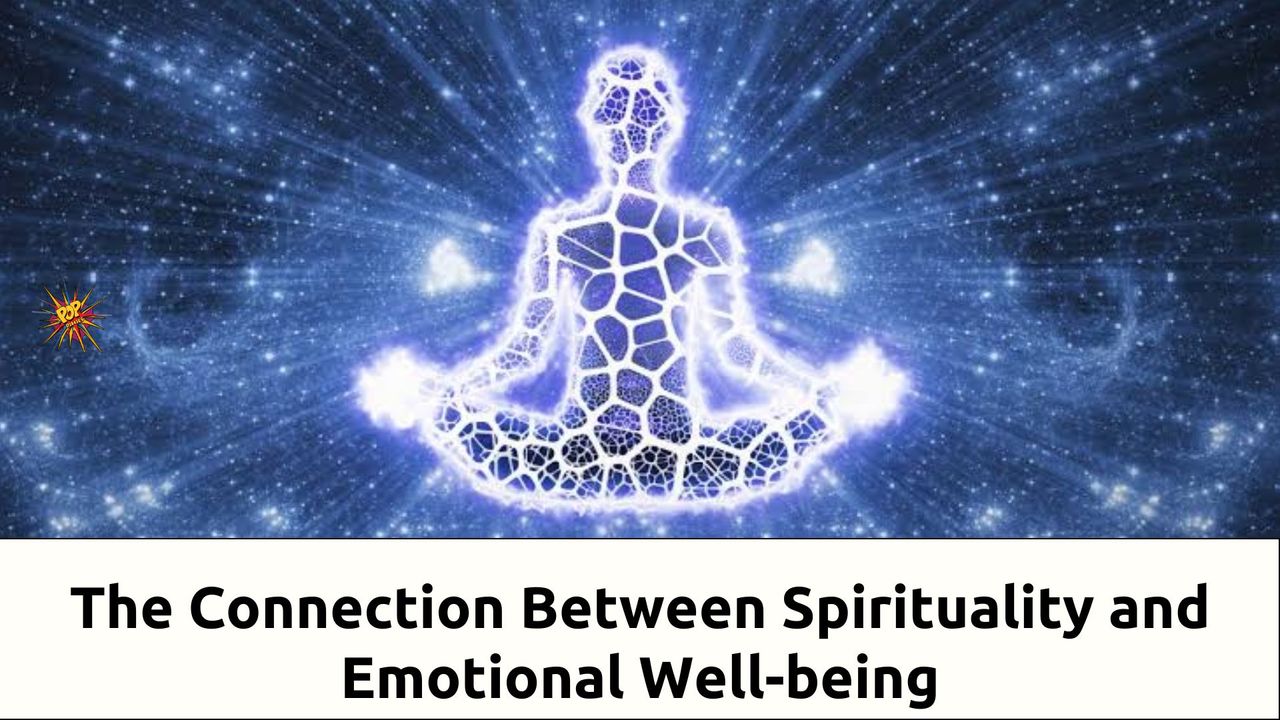Overcoming mental trauma requires a combination of emotional strength, practical strategies, and supportive environment. While recovering is unique to...
Vous n'êtes pas connecté
- English
- Français
- عربي
- Español
- Deutsch
- Português
- русский язык
- Català
- Italiano
- Nederlands, Vlaams
- Norsk
- فارسی
- বাংলা
- اردو
- Azərbaycan dili
- Bahasa Indonesia
- Հայերեն
- Ελληνικά
- Bosanski jezik
- українська мова
- Íslenska
- Türkmen, Түркмен
- Türkçe
- Shqip
- Eesti keel
- magyar
- Қазақ тілі
- Kalaallisut ; kalaallit oqaasii
- Lietuvių kalba
- Latviešu valoda
- македонски јазик
- Монгол
- Bahasa Melayu ; بهاس ملايو
- ဗမာစာ
- Slovenščina
- тоҷикӣ ; toğikī ; تاجیکی
- ไทย
- O'zbek ; Ўзбек ; أۇزبېك
- Tiếng Việt
- ភាសាខ្មែរ
- རྫོང་ཁ
- Soomaaliga ; af Soomaali
 Maroc - POPDIARIES.COM - A La Une - Hier 13:12
Maroc - POPDIARIES.COM - A La Une - Hier 13:12
The Connection Between Spirituality and Emotional Well-being
In today’s fast-paced world, many of us are looking for ways to handle stress, stay balanced, and find peace within ourselves. One path that often helps is spirituality. Spirituality isn’t necessarily tied to religion; rather, it’s about finding a connection with something larger than ourselves, whether it’s nature, the universe, or just a sense of inner peace. But how does this connection impact our emotional well-being? Let’s explore how spirituality can enhance our emotional health and bring more peace to our everyday lives. 1. A Sense of Purpose and Inner Calm One of the main reasons spirituality boosts emotional well-being is because it gives us a sense of purpose. Having a purpose, even if it’s as simple as being kind to others or helping out, gives our life direction. For example, someone who finds purpose in helping animals or teaching children often feels more fulfilled. This purpose can be like a guide, helping us through challenging times and bringing calm when we need it the most. 2. Mindfulness and Being Present Spiritual practices, such as meditation and mindfulness, encourage us to focus on the present moment. Mindfulness, for instance, teaches us to pay attention to our thoughts, feelings, and surroundings without judgment. Imagine the last time you sat down for a cup of tea and really noticed the warmth, aroma, and taste—those mindful moments can reduce stress and bring clarity. By practicing mindfulness, we learn to step back from our daily worries. Instead of getting overwhelmed by thoughts about the future or the past, we’re grounded in the now, which helps to reduce anxiety and improve our overall mood. 3. Building Resilience Through Faith and Positivity For many people, spirituality involves faith, whether it’s in a higher power, the universe, or simply in life’s positive flow. This faith often brings resilience. Think about it: when life gets tough, faith can be like a safety net, reminding us that things will eventually improve. This trust helps us deal with life’s setbacks more gracefully. Faith doesn’t mean ignoring difficulties; it means having a belief that there’s more to life than just our struggles. This attitude can shift our mindset from feeling powerless to feeling hopeful, making it easier to handle challenges without becoming overwhelmed. 4. Building Connections with Like-Minded People Many people find spirituality within communities, whether it’s through meditation groups, religious gatherings, or even online forums focused on positivity. Being part of a community where people share similar values can make a big difference. When you’re surrounded by people who understand your beliefs, you feel a sense of belonging. Consider joining a local yoga class or a nature club—activities that promote spiritual growth. These groups not only build friendships but also create a support system that can lift your spirits during hard times. Knowing that others are there for you adds a comforting layer to our emotional lives. 5. Spiritual Practices that Help Release Negative Emotions Spiritual practices such as journaling, meditation, and prayer are effective ways to release pent-up emotions. Writing in a journal, for example, allows you to express feelings that you may otherwise keep bottled up. Taking a few minutes each day to write about what you’re grateful for or what’s on your mind can act as an emotional release. Meditation helps you observe your thoughts without getting attached to them. By doing this, you can let go of negativity, making room for positive feelings. These practices don’t need to be complicated; even a short five-minute meditation can have a calming effect on your emotional state. 6. Developing Empathy and Compassion Spirituality often encourages us to look beyond ourselves, leading to a greater sense of empathy and compassion. Whether it’s through helping a neighbor, listening to a friend, or volunteering, acts of compassion uplift both the giver and receiver. Studies show that kindness triggers the release of “feel-good” hormones, which can naturally improve your emotional well-being. For example, if you spend an afternoon helping out at a community kitchen, the joy and gratitude you feel afterward can stay with you for days. These acts may seem small, but they help build a positive, connected outlook, which contributes to long-term emotional health. 7. Accepting Life’s Ups and Downs Spirituality teaches acceptance—a valuable tool for managing our emotional health. Life is full of ups and downs, but spiritual practices help us accept things as they are. Imagine how different your day would feel if, instead of getting frustrated with every inconvenience, you saw them as temporary moments. Through spirituality, we learn that not everything is under our control, and that’s okay. This acceptance can reduce stress and help us respond to challenges with a calm, balanced mindset. Rather than feeling overwhelmed, we can remind ourselves that every situation, good or bad, is a part of our journey. The connection between spirituality and emotional well-being is evident in the sense of peace, purpose, and connection it brings. Whether through mindfulness, finding a supportive community, or simply practicing compassion, spirituality offers tools that help us manage stress, embrace joy, and build resilience. Exploring this connection can be a gentle yet powerful way to enrich our emotional lives and find balance in today’s busy world. Also Read: 7 Mind Blowing Health Tips You Wish You Knew Sooner 10 Clear Signs You're an Ambivert at Heart Never Lose Your Childlike Heart, No Matter Your Age Powerful Strategies for Overcoming Mental Trauma and Finding Peace
Articles similaires
Why A Cow is the Ultimate Companion for Your Life
Owning a cow is way more essential than just a financial investment; it can deeply enrich your life in ways that go beyond money. Here are some of the...
Children’s Day Special: Parenting Practices to Prevent Childhood Trauma and Foster Lifelong Mental Well-being
Parenting is a delicate balance between nurturing, guiding, and protecting. As children grow, the experiences they encounter shape not only their...
This is How Abusive Language Can Disturb Your Consciousness
Abusive language, whether directed at others or oneself, can deeply disturb one's consciousness, affecting mental and emotional well-being. When we...
In prayer with old monks
I’m taking a group from our church on a spiritual retreat this weekend. I’ve gone on many personal retreats to the Abbey of the Genesee, a...
Feeling the Shift? Signs Your Manifestation Is Almost Here.
Manifestation is a very powerful process of bringing your desires into reality through focused intention, positive thinking, and beliefs. While the...
THE SPIRITUALITY OF THANKSGIVING
SCRIPTURE: It is a good thing to give thanks unto the LORD, and to sing praises unto thy name, O most High: To shew forth thy lovingkindness in the...
The colour of prayer
For my birthday last month, I asked for markers. Since then, I’ve spent several hours in my soft front-room chair, copying out verses from the...
Some Telltale Signs of Manipulation and Gaslighting to Watch out for
Manipulation and gaslighting are psychological tactics which are used to control or distort a person's perception of reality. Recognizing these...
Diwali 2024: How Post-Diwali Pollution Affects Your Health
While Diwali is an occasion for celebration, it’s crucial to be mindful of the environmental and health impacts associated with the festival. By...
Les derniers communiqués
-
Aucun élément








